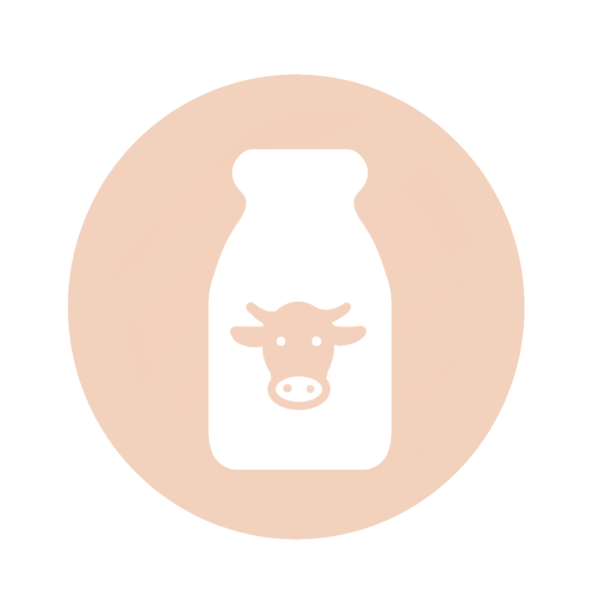Cow milk intolerance
Baby health

When babies develop allergic reactions after drinking cow’s milk or formula made from cows’ milk, you can suspect that they are allergic to cow milk protein or are lactose intolerant.
What is cow milk allergy?
Cow milk allergy occurs when the body’s immune system mistakes the proteins in cow’s milk for a harmful foreign agent and attacks it. It is one of the most common food allergies in children and affects about 7% of formula-fed infants. Most children eventually outgrow it.
Though rare, babies who exclusively breastfeed can have an allergic reaction to cow milk protein in their mother’s diet.
Two types of allergic reactions:
- Immediate, which means the symptoms begin immediately after taking cow’s milk
- Delayed, which means the symptoms begin several hours, or even days, after taking cow’s milk
How do you know that your baby is allergic to cow’s milk?
Allergic reactions to cow’s milk usually involve visible physical reactions in addition to digestive problems. These responses are different from those arising from lactose intolerance. Common symptoms include:
- Digestive problems, like diarrhea, vomiting, abdominal pain, colic, or constipation
- Skin reactions, such as itchy rashes or swelling of the lips, face, and eyes
- Hay fever-like symptoms, such as a runny or blocked nose (a less common symptom)
- Eczema that does not improve with treatment
- Mouth and throat swelling
- Respiratory problems, like wheezing, cough, shortness of breath, and difficulty in breathing (anaphylaxis)
Note that if a baby experiences digestive problems together with skin reactions and hay fever, the little one may have a severe allergic reaction and will need immediate medical care.
Treating cow milk allergy
You should consult with a pediatrician if you think that your child is allergic to cows’ milk. The doctor will then refer you to an allergy specialist or a dietitian. An important part of the treatment is to remove cow’s milk from your baby’s diet for some time.
If your baby is exclusively breastfed and exhibits allergic reactions, then you should stop eating food that has cow’s milk as preliminary screening and seek medical attention. It is rare for a breastfeeding child to experience an allergic response to something passed through a mother’s milk.
What about lactose intolerance?
Lactose intolerance is when the body doesn’t have the enzyme to digest lactose — the sugar naturally found in milk. So, it is different from an allergy, which is a response of the immune system.
If born without the enzyme lactase, the baby will be lactose intolerant since birth. Or, the baby can become lactose intolerant after a bowel infection.
Identifying lactose intolerance
The symptoms of lactose intolerance occur in the digestive tract, and they include:
- Diarrhea
- Vomiting
- Stomach rumbling and pains
- Abdominal gas
Treating lactose intolerance
The treatment depends on the severity of the intolerance. You have to consult your child’s pediatrician and a dietitian for guidance. In some cases, the baby may be able to take a small amount of cow’s milk.
Verified:
Dr. Wanwadee Sapmee Panyakat (OB-GYN) (17 November 2021)



